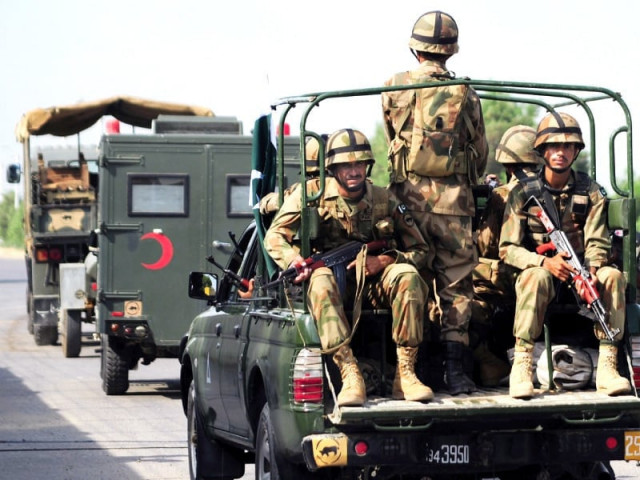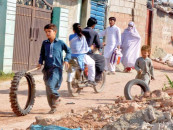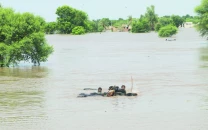Pakistan to keep modernising its military: US report
Says Islamabad procures WMD applicable goods from foreign suppliers

Pakistan regards India as an existential threat and will continue to pursue its military modernization effort, including the development of battlefield nuclear weapons, to offset India's conventional military advantage, said 2025 Worldwide Threat Assessment.
The assessment was prepared by the US Defense Intelligence Agency (DIA) and presented to the US House of Representatives' Armed Services Subcommittee on Intelligence and Special Operations based on information available as of May 11, 2025.
Following the April 22 militant attack in occupied Kashmir, India conducted missile strikes in Pakistan. The missile strikes provoked multiple rounds of missile, drone, and loitering munition attacks, and heavy artillery fire, by both militaries from May 7 to May 10, when both countries agreed to a full ceasefire.
The assessment said Pakistan is modernizing its nuclear arsenal and maintaining the security of its nuclear materials and nuclear command and control. "Pakistan almost certainly procures WMD [Weapons of Mass Destruction] applicable goods from foreign suppliers and intermediaries," it claimed.
According to the assessment, Pakistan primarily is a recipient of China's economic and military largesse, and Pakistani forces conduct multiple combined military exercises every year with China's People's Liberation Army (PLA), including a new air exercise completed in November 2024.
"Foreign materials and technology supporting Pakistan's WMD programs are very likely acquired primarily from suppliers in China, and sometimes are transshipped through Hong Kong, Singapore, Turkey, and the United Arab Emirates."
It stated that during the next year, the Pakistani military's top priorities are likely to remain cross-border skirmishes with regional neighbors, rising attacks by the TTP and Baloch militants, counterterrorism efforts, and nuclear modernization. It said despite Pakistan's daily operations during the past year, militants killed more than 2,500 people in Pakistan in 2024.
It also claimed that terrorist attacks targeting Chinese workers who support China-Pakistan Economic Corridor (CPEC) projects have also emerged as a point of friction between the two countries as seven Chinese nationals were killed in Pakistan in 2024.
According to the assessment, Pakistan and Iran have taken steps, including high-level meetings, to de-escalate tensions after the two countries conducted unilateral airstrikes on each other's territory in January 2024 in response to cross-border terror attacks.
"In September 2024, Taliban and Pakistani border forces clashed near border posts, resulting in the death of eight Taliban fighters. In March 2025, Pakistan and Afghanistan exchanged air and artillery strikes on each other's territory, each citing alleged militant infrastructure as the targets," it said.
It stated that South Asia's security situation is shaped by various factors, including terrorism and longstanding mistrust among neighboring states, several of which are modernizing their militaries and nuclear capabilities.
"Terrorist activity in Afghanistan and Pakistan will challenge military and security forces, and ongoing tensions along India and China's Line of Actual Control border demarcation are capable of escalating quickly. Russia and China continue efforts to bring regional powers closer into their respective spheres of influence," it added.
The assessment said Indian Prime Minister Narenda Modi's defense priorities will probably focus on demonstrating global leadership, countering China, and enhancing New Delhi's military power.
"India views China as its primary adversary and Pakistan more an ancillary security problem to be managed, despite cross-border attacks in mid-May by both India's and Pakistan's militaries."
It said to counter Chinese influence and boost its global leadership role, India is giving priority to advancing its bilateral defense partnerships in the Indian Ocean region through exercises, training, arms sales, and information sharing.
India also has increased trilateral engagement in the Indo-Pacific region and actively participates in multilateral fora such as the Quadrilateral, BRICS, the Shanghai Cooperation Organization and ASEAN.
It said that China will continue to advance selected areas of partnership with Russia while avoiding actions such as overtly providing materiel or lethal military assistance to Russia that might elicit reputational or economic costs for Beijing.






















COMMENTS
Comments are moderated and generally will be posted if they are on-topic and not abusive.
For more information, please see our Comments FAQ